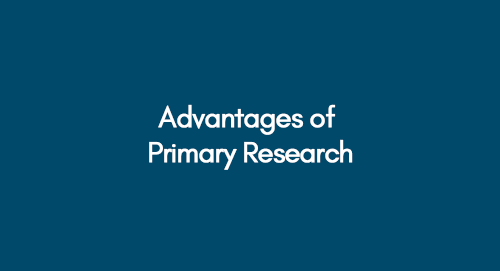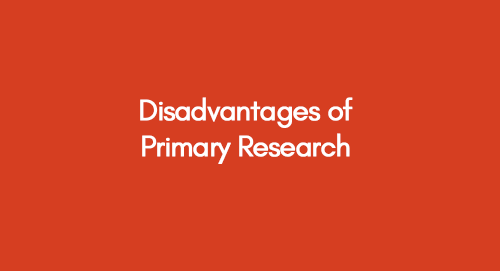
What are the Advantages of Primary Research?
June 7, 2023
Dissertation Question Examples
June 9, 2023Although primary research helps in collecting data, it also has numerous limitations and disadvantages. Because it enables you to collect only the information that is necessary to achieve your study goals. But on the other hand, conducting primary research has a number of drawbacks.
Explore New Examples for Thesis Writing Here
Review Our Quality Dissertation Topics
In this post, we'll take a closer look at a few of these drawbacks.
Note: Below is a complete guide to ace the skill of primary research for your final project.
6 Primary Research Disadvantages You Must Know
While primary research offers numerous benefits, it is essential to acknowledge its limitations and potential disadvantages. This article aims to shed light on the drawbacks of primary research, highlighting the challenges that you face and the impact these limitations can have on the research outcomes. Let's take a look at the cons of primary research:
1. Time-Consuming and Resource-Intensive
One of the primary disadvantages of primary research is the significant investment of time and resources it requires. Designing research protocols, recruiting participants, collecting and analyzing data, and interpreting results demand substantial effort and financial investment. Additionally, researchers may encounter challenges in coordinating schedules, securing participants, or managing logistical aspects, leading to potential delays and increased costs.
2. Limited Sample Size and Generalizability
Primary research often involves a smaller sample size compared to secondary research, which relies on existing data and information. While primary research can provide in-depth insights into specific cases or scenarios, the findings may not be easily generalizable to larger populations or contexts. The restricted sample size may limit the applicability of the results and hinder the ability to draw broader conclusions.
3. Potential for Bias and Subjectivity
The presence of bias and subjectivity is another significant disadvantage of primary research. Your perspectives, personal experiences, and unconscious biases can inadvertently influence the research process, potentially leading to skewed results. Additionally, the involvement of human subjects in interviews or surveys can introduce response bias, as participants may alter their responses due to social desirability or other factors, compromising the reliability and validity of the data.
4. Ethical Considerations and Challenges
Primary research involving human participants necessitates careful adherence to ethical guidelines and regulations. You must prioritize participant welfare, privacy, and informed consent. Securing ethical approvals and ensuring compliance can be a complex and time-consuming process. Moreover, ethical constraints may limit certain types of primary research, such as experiments involving potential risks to participants or controversial areas of study.
5. Cost and Accessibility Limitations
Conducting primary research can be costly, especially when considering factors like participant recruitment, data collection tools, research equipment, and analysis software. Researchers with limited funding may face challenges in executing large-scale primary research studies or accessing necessary resources. This limitation can restrict the scope and depth of the research, potentially impacting the validity and reliability of the findings.
6. Time Sensitivity and Outdated Information
Primary research is a time-sensitive process, and the collection and analysis of data can take a significant amount of time. By the time the research is completed, the data may no longer accurately reflect the current state of the subject under investigation. This time lag can be problematic, particularly in fast-paced fields where information quickly becomes outdated. Secondary research methods may provide more up-to-date information in such cases.
Final Thought
While primary research offers invaluable benefits in terms of providing firsthand insights and in-depth understanding, it is essential to acknowledge its limitations and potential disadvantages. The time, resources, and subjectivity involved, along with issues related to sample size, generalizability, and ethical considerations, pose challenges to researchers. Awareness of these drawbacks enables researchers to make informed decisions about the appropriate research methods to employ, ensuring the credibility and applicability of their findings. Balancing the advantages and disadvantages of primary research is crucial for robust and reliable research outcomes.
Review our following links;
Get 3+ Free Dissertation Topics within 24 hours?



























